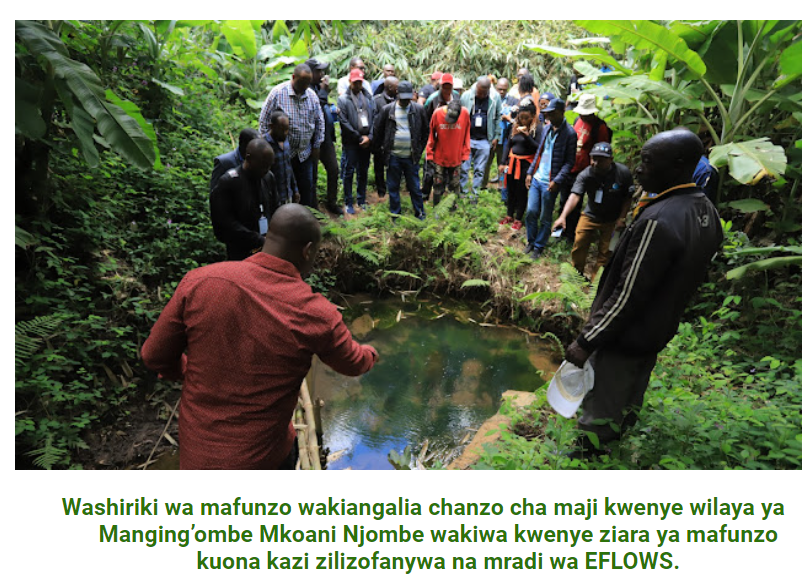The Regional Commissioner of Mbeya, Hon. Juma Homera, on behalf of the Government of the United Republic of Tanzania, has commended the good research work done by SUA in collaboration with NEMC, which has led to the dissemination of its results in ten countries along the western Indian Ocean region.
The Mbeya District Commissioner, Hon. Beno Malisa, while closing a six-day training for Senior Water and Environment Officers from four countries, including Madagascar, Mozambique, Kenya, and host Tanzania, as part of the dissemination of the results of the EFLOWS Research Project on Sustainable Management of Water Resources through the Assessment of Strengthening Water Flow for the Environment and its Implementation in Protecting the Western Indian Ocean Region and the Impact of Human Activities in Tanzania.
“On behalf of the Mbeya Region, I take this opportunity to commend the Sokoine University of Agriculture through the Principal Investigator of this EFLOWS project, Prof. Japhet Kashaigili, who is the coordinator of these training sessions, for the good work they have done so far, which has enabled all of you to come to Tanzania to see and learn the good results with the aim of using them in your respective countries to protect the safe flow of water into the sea,” explained Hon. Malisa.
He said he believes that the education they have acquired through expert trainers on water assessment for the environment from Tanzania and Australia will enable them to acquire knowledge and techniques that will help them effectively implement plans and manage river and water source issues for the broader interests of humans, the environment, and other important water-dependent projects and the entire ecosystem.
For his part, the Principal Investigator of the project, who is the Director of the Directorate of Postgraduate Studies, Research, Technology Transfer, and Professional Advice at SUA, Prof. Japhet Kashaigili, said that this research is one of three projects funded by the WIOSAP Program in Madagascar, Tanzania, and Mozambique over a period of two and a half years.
“The objective of this project was to reduce the impact of human activities to strengthen the Water Flow for the Environment and its Implementation in Protecting the Western Indian Ocean Region through the Assessment of Strengthening Water Flow for the Environment and its Implementation, with funding from the Nairobi Convention, which is a contribution from the member countries, including Tanzania,” explained Prof. Kashaigili.
Furthermore, Prof. Kashaigili said that these training sessions aimed to build the capacity of managers and experts in the member countries of the Western Indian Ocean region on environmental water assessment and the “Source to Sea” concept, especially during this period when there are major challenges of environmental degradation and water sources globally.
He added that these training sessions will also help build and review participatory approaches that can be used to help address the challenge of the impact of water flow on the environment, as well as environmental pollution in the ocean and its impact on aquatic organisms.






